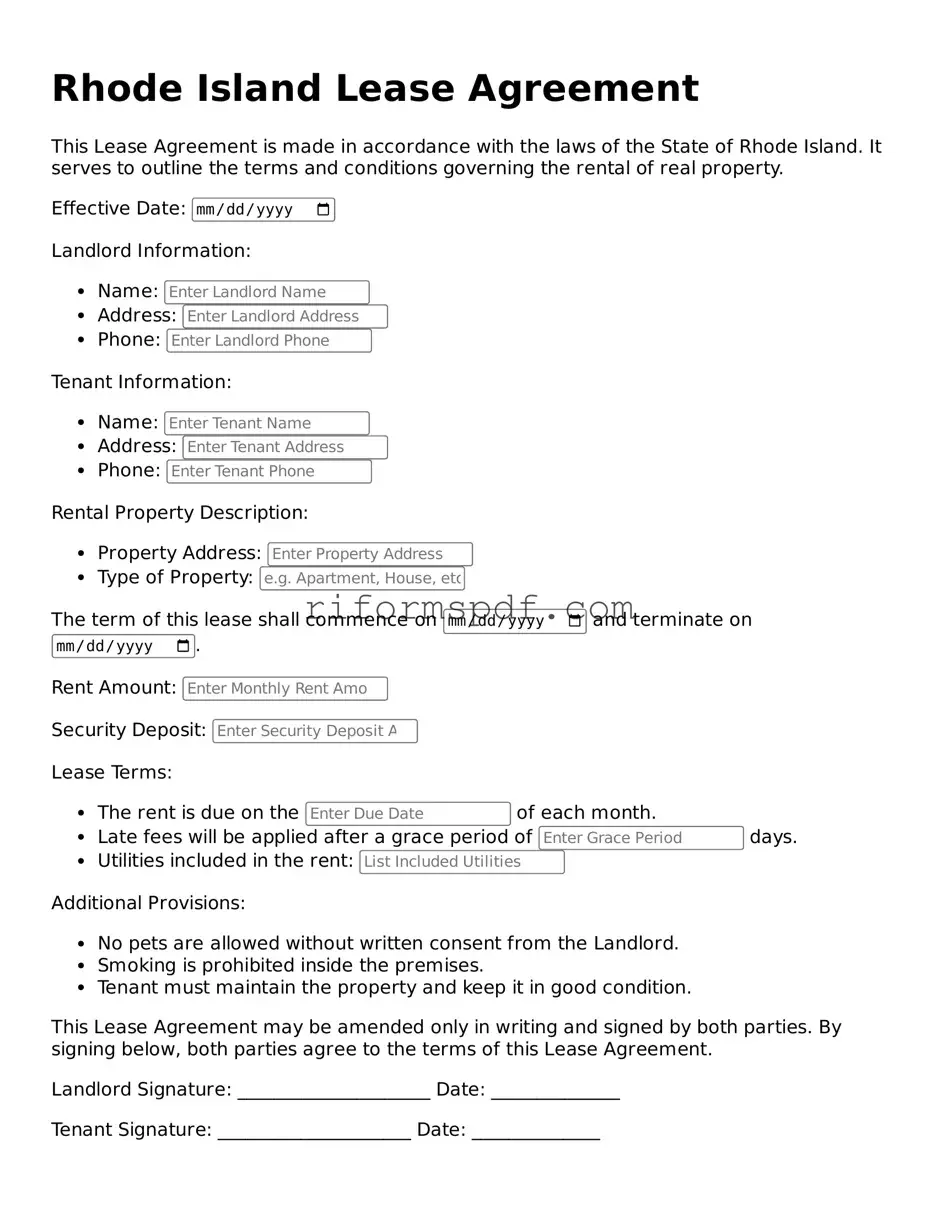Printable Lease Agreement Form for Rhode Island
A Rhode Island Lease Agreement is a legally binding document that outlines the terms and conditions between a landlord and a tenant for renting residential or commercial property. This form serves to protect the rights of both parties, ensuring clarity and understanding regarding rental payments, property maintenance, and other essential responsibilities. Understanding this agreement is crucial for anyone looking to rent or lease property in Rhode Island.
Launch Editor

Printable Lease Agreement Form for Rhode Island
Launch Editor
Finish the form now and be done
Edit Lease Agreement online and skip the paperwork.
Launch Editor
or
⇓ PDF Form
